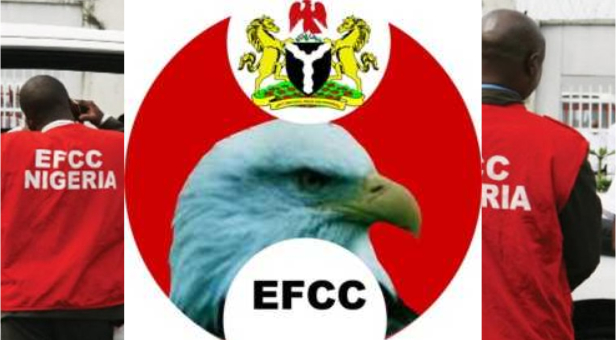
The anti-graft agency appealed the decision which discharged and acquitted the respondent on nine counts before Justice Nnamdi Dimgba of the Abuja Division of the Federal High Court.
Earlier on February 1, 2017, Shamsudeen was arraigned before Justice Nnamdi Dimgba of the Federal High Court sitting in Abuja, on 20 counts bordering on money laundering.
The EFCC had alleged that Shamsudeen made payments of huge sums in cash for the purchase of properties in different parts of Abuja without going through a financial institution.
Delivering the ruling on December 14, 2021, on a no-case submission, Justice Dimgba upheld Shamsudeen’s submission in part by dismissing 11 out of the 20 charges.
He was left to defend himself for his failure to declare some of his bank accounts and the amount in them to the EFCC, identity fraud, and forgery.
However, delivering judgment in a suit marked FHC/BAJ/CR/252/2016 on February 7, 2023, Justice Dimgba held that the EFCC failed to prove the allegations beyond a reasonable doubt.
On the allegations that the defendant forged signatures and documents to access illegal funds, the Judge said the anti-graft agency’s forensic expert did not provide sufficient evidence to prove the charge.
“An allegation that a document is forged is a criminal allegation that must be proved beyond reasonable doubt and not by speculation,” he said.
The Judge held that the burden of proof rested on the prosecution, adding that it did not discharge the burden beyond a reasonable doubt.
He also ordered the prosecution to refund Mohammed’s son’s N580,000 and $60,000 as well as other items taken from his apartment in the course of executing the search warrant on his apartment.
Dissatisfied, the anti-graft agency filed a notice of appeal before an Abuja Division of the Court of Appeal, praying the court to set aside the judgment.
The appeal is dedicated on 13 grounds and seeks only one relief: “An order allowing the appeal, setting aside the judgment of the Honourable Nnamdi Dimgba of the Federal High Court, Abuja dated 7th day of February and in its place entering an order convicting and sentencing the Respondent”.
In one of the grounds of the appeal, the EFCC stated, “The trial court erred in law by holding that the case of the Appellant against the Respondent on Count 11 of the Charge was not proved beyond reasonable doubt.”
On this ground, the anti-graft agency stated that evidence which was not objected to was rendered against the respondent “indicating that the contents were unassailable”.
The agency further contended that the appeal of shock raised by the respondent and considered by the trial court was not available to the respondent.
On another ground, it argued that, “The trial court ignored legally admissible evidential materials of proof beyond reasonable doubt, which itself had reflected on page 12 of the judgment tendered by the Appellant in support of counts 11-15”.





